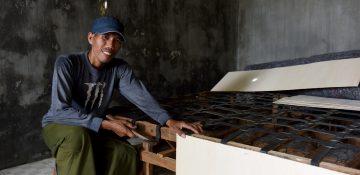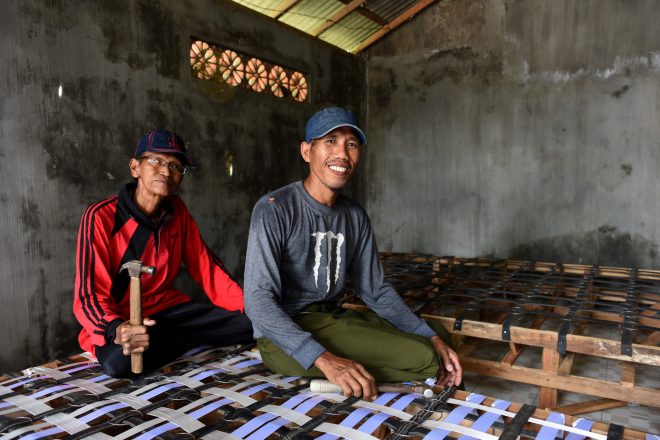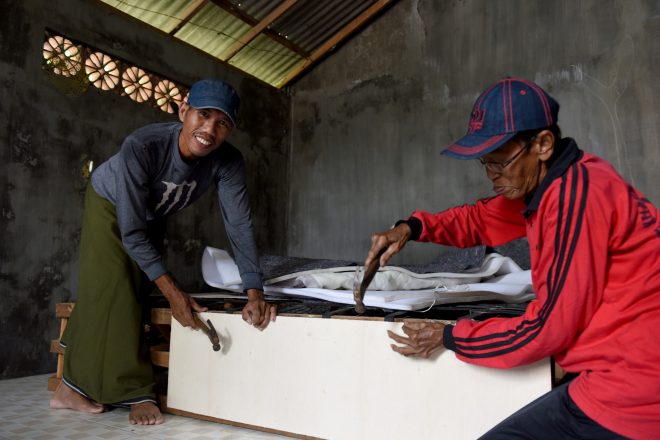The story of Mohammed
Mohammed’s family feared his leprosy. He was locked up indoors and was refused permission to go outside. He now travels the villages to spread the word that leprosy can be cured and that the people affected by it, should not be locked away.

Full recovery is only possible with family support
“When the first signs of leprosy emerged, I thought I was superman. My one arm had become numb. I could hold a match to it and not feel a thing. When my neighbours said it was leprosy, my parents’ world, and with it my own, collapsed.
My parents thought my illness was a punishment from God
My parents thought my illness was a punishment from God. I was no longer allowed to go outside the house. They hid me indoors and gave me a separate room. I always sat in the same chair, ate from the same plate with the same cutlery, and used my own towel. Not only my parents but the rest of my family too, feared my leprosy.
These days were the darkest of my life. Even today, the memories of it can bring me to tears. After a year, by accident, my parents discovered that one of our neighbours had also had leprosy but had been cured. It was only then that I was I taken to a clinic. Three years later, I too had been healed. But the consequences of the disease haunt me to this very day, 28 years later.


Often the stigma attached to leprosy affects a person much longer than the disease itself. That’s why I’m so motivated to fight leprosy
My brothers and sisters continue to be ashamed of my illness. Often the stigma attached to leprosy affects a person much longer than the disease itself. That’s why I’m so motivated to fight leprosy.
The family of people affected by leprosy can play a major role in the reduction of stigma
I’m the chairman of a group that was set up by people who were affected by leprosy. Together we fight the disease on East Java. The situation has improved a lot already. People affected by leprosy used to be completely cut off from their environment. Nevertheless, our work remains important. Every year, four thousand people become affected by leprosy in this area.
Together we visit villages to spread the word that leprosy can be cured and that people affected by the disease should not be locked away. Very important also, are the conversations we have with religious leaders. They can play a major role in the reduction of stigma. Just like the families of people affected by leprosy. Medication cures leprosy, but full recovery is only possible with family support.